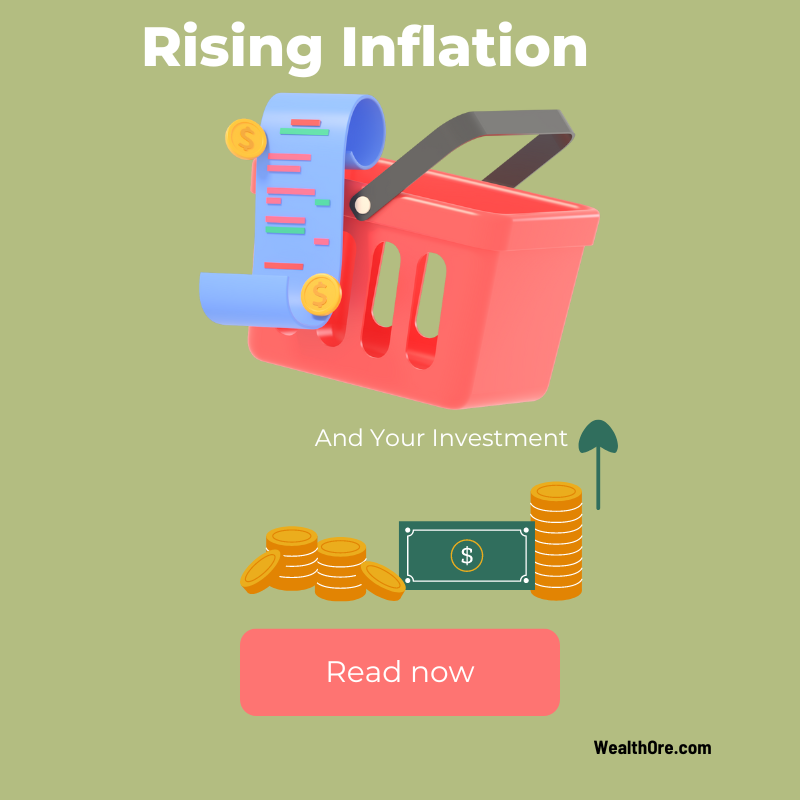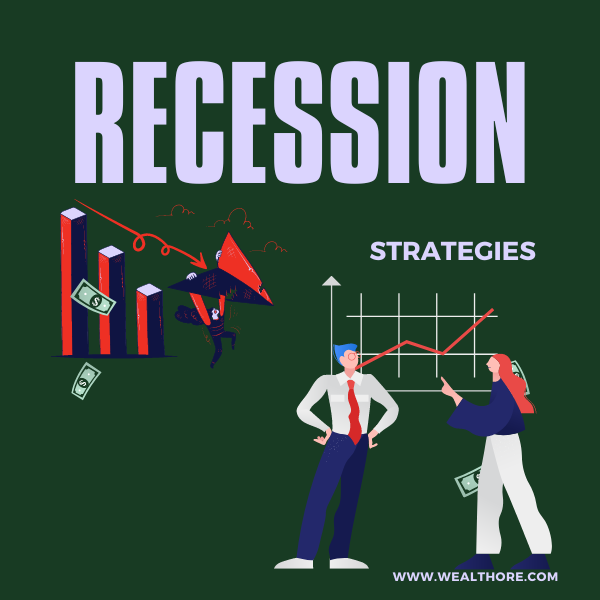How Does Inflation Affect Investments?
Have you ever wondered how inflation impacts your investments and what you can do to protect your assets? How to prepare your investments for rising inflation is a critical question for investors in today’s economic environment. Inflation, the gradual increase in prices over time, erodes the purchasing power of money. While a moderate level of inflation is normal in a growing economy, high inflation can significantly affect your investments. Understanding how inflation impacts different types of investments is crucial for developing strategies to safeguard your assets.
The Effects of Inflation on Different Investments
Stocks
Inflation affects stocks in several ways. On one hand, companies can pass on higher costs to consumers by raising prices, which can maintain their profit margins. This scenario is particularly true for companies with strong pricing power. On the other hand, high inflation can lead to higher interest rates, which increase borrowing costs for businesses and can negatively impact their profitability and stock prices.
Bonds
Bonds are particularly vulnerable to inflation. When inflation rises, the fixed interest payments from bonds lose purchasing power. Moreover, higher inflation often leads to higher interest rates, which decrease the value of existing bonds with lower rates. Inflation-indexed bonds, such as Treasury Inflation-Protected Securities (TIPS), are an exception as their principal and interest payments adjust with inflation.
Real Estate
Real estate can be a good hedge against inflation. Property values and rental incomes often increase with inflation, preserving the real value of these investments. However, the performance of real estate investments can vary based on location, property type, and economic conditions.
Cash and Savings Accounts
Cash and savings accounts lose value during periods of high inflation as the purchasing power of money declines. The interest rates on savings accounts often do not keep pace with inflation, leading to a decrease in the real value of your savings.
Commodities
Commodities, such as gold and oil, tend to perform well during inflationary periods. As prices rise, the value of commodities often increases, providing a hedge against inflation. However, commodities can be volatile and are influenced by various factors beyond inflation.
What is Market Volatility?
Market volatility refers to the rapid and significant price movements in the financial markets. During periods of high inflation, market volatility tends to increase as investors react to changing economic conditions and monetary policies. Understanding how to prepare your investments for rising inflation includes being aware of how inflation can contribute to market volatility and the subsequent impact on your investment portfolio.
Strategies for Protecting Your Investments from Inflation
Diversify Your Portfolio
Diversification is a key strategy for protecting your investments from inflation. By spreading your investments across different asset classes, such as stocks, bonds, real estate, and commodities, you can reduce the impact of inflation on your overall portfolio. Diversification helps balance the risks and returns associated with each asset class.
Invest in Inflation-Protected Securities
Consider adding inflation-protected securities, such as TIPS, to your portfolio. These securities adjust their principal and interest payments based on inflation, providing a direct hedge against rising prices. Inflation-protected securities can help preserve the real value of your investments during inflationary periods.
Focus on Stocks with Pricing Power
Invest in companies with strong pricing power that can pass on higher costs to consumers. These companies are better positioned to maintain their profit margins during inflationary periods. Sectors such as consumer staples, healthcare, and utilities often have companies with significant pricing power.
Include Real Estate in Your Portfolio
Real estate investments can provide a hedge against inflation as property values and rental incomes tend to rise with inflation. Consider diversifying your portfolio with real estate assets, including direct property investments, real estate investment trusts (REITs), or real estate-focused mutual funds and ETFs.
Hold Commodities
Including commodities in your investment portfolio can offer protection against inflation. Commodities such as gold, silver, and oil often increase in value during inflationary periods. However, it’s important to be aware of the volatility and risks associated with commodity investments.
Maintain a Long-Term Perspective
Maintaining a long-term investment perspective can help you weather short-term inflationary pressures. Focus on the long-term growth potential of your investments and avoid making impulsive decisions based on short-term inflation trends. A well-structured, diversified portfolio can provide resilience against inflation over time.
Historical Examples of Market Recoveries
Examining historical examples of market recoveries can provide valuable insights into how to prepare your investments for rising inflation. During periods of high inflation in the past, various markets have experienced downturns followed by recoveries. For instance, during the 1970s, the United States experienced high inflation, which led to significant market volatility. However, by the 1980s, the economy and markets began to recover as inflation was brought under control. Learning from these historical examples can help investors remain calm and make informed decisions during inflationary periods.
Conclusion
Inflation is an inevitable part of economic cycles, and its impact on your investments can be significant. By understanding how inflation affects different asset classes and implementing strategies such as diversification, investing in inflation-protected securities, focusing on companies with pricing power, including real estate, holding commodities, and maintaining a long-term perspective, you can safeguard your assets and protect your investments from the adverse effects of inflation.
For more tips and strategies on protecting your investments from inflation, visit our WealthOre blog.
Learn about inflation-indexed securities on the U.S. Treasury website.
What strategies have you found effective in protecting your investments from inflation? Share your experiences and insights in the comments below!







